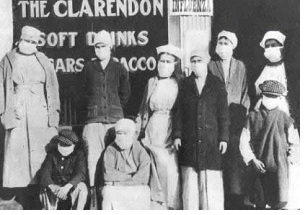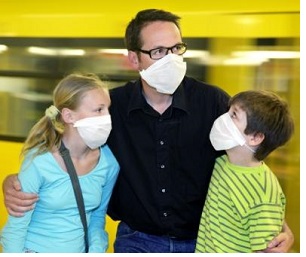Emergency Preparedness: Online Trainings
These courses are free and open to anyone in the United States. To access them Kansans should go to the Kansas TRAIN homepage; all others go to the national TRAIN homepage. If you are a first-time user, you will need to create a login name and password. You can search for the courses by name and/or number.
The Prepared Lifestyle, Part 1 (Course 1032885 at KansasTrain)
 This unique introductory/intermediate course is appropriate for people at all professional levels. It covers public health threats and their prevalence, the characteristics of pandemics, and the risk factors that affect people with disabilities during public health threats.
This unique introductory/intermediate course is appropriate for people at all professional levels. It covers public health threats and their prevalence, the characteristics of pandemics, and the risk factors that affect people with disabilities during public health threats.
The one-hour course is designed for:
- Educators/Trainers
- Emergency Responders/Receivers
- Public Health Professionals
- Emergency Medical Service Providers
- Health Care Professionals
- Home Care Professionals
The 1918 influenza pandemic. Photo courtesy CDC.
The Prepared Lifestyle, Part 2 (Course 1034213 at KansasTrain)
 This introductory course focuses on preparing for the seasonal flu as well as a severe pandemic. It addresses preparedness for both individuals and workplaces.
This introductory course focuses on preparing for the seasonal flu as well as a severe pandemic. It addresses preparedness for both individuals and workplaces.
The one-hour course is designed for:
- Educators/Trainers
- Emergency Responders/Receivers
- Public Health Professionals
- Emergency Medical Service Providers
- Health Care Professionals
- Home Care Professionals
Planning for Disaster-Related Risk and Functional Needs of People with Disabilities: Train-The-Trainer (Course 1026720 at KansasTrain)
One of the key concepts of FEMA’s “Whole Community” approach to emergency management is to understand and meet the true needs of the entire community. This 75-minute course for trainers identifies functional needs and seven risk factors associated with disasters and the health and safety of people with disabilities and how to prepare accordingly.
The course provides all the materials needed for a trainer to deliver the curriculum in his or her own community.
Non-Trainer Version of Course (1026403)
For persons who do NOT plan to teach, a one-hour version of the above course is available by this title and course number: Planning for Disaster-Related Risk and Functional Needs of People with Disabilities (Course 1026403 at KansasTrain).
Animal Emergency Preparedness (Course 1025307 at KansasTrain)
Hurricane Katrina, the tornadoes in Greensburg, Kansas, and Joplin, Missouri, the earthquake and tsunami in Japan - these and many other events have shown us that disasters do not distinguish between animals and humans.
The good news: It is possible to prepare for your animals as well as for yourself. This online course provides information on how to keep service animals and pets safe in both natural and manmade disasters.
The hour-long course is appropriate for a wide audience, from professionals to pet owners, including:
- Emergency responders
- People with disabilities who use service animals or have pets
- Professionals who provide services to people with disabilities, such as staff from centers for independent living and personal care attendants
- Staff and volunteers of animal shelters
- People who have pets or know others who have pets
Continuing education units are not offered, but people who take the course will have access to the objectives and an official certificate noting the course time of 60 minutes. They can then self-submit to their professional entity for CEUs.
Ready, Willing and Able (Course 1020884 at KansasTrain)
This course is designed for the public health, hospital, preparedness, emergency response and disaster relief workforces.
Course participants will become familiar with various disaster assistance needs of persons with sight, mobility, hearing, and cognitive disabilities. The training also covers disability etiquette and terminology, and communications and assistance techniques for assisting people with disabilities during disasters.